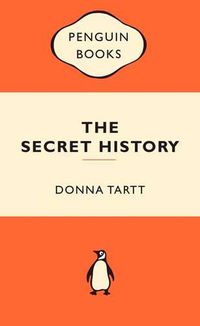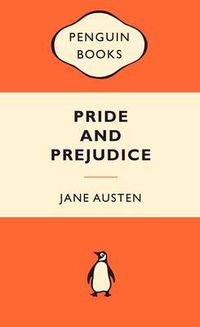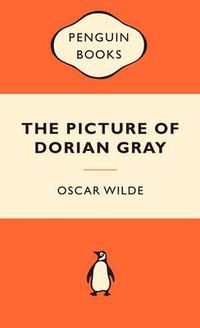Dear Reader
It doesn’t seem so long ago that I sat down to write the version of this piece for the February 2020 Readings Monthly, but then again, as I am certainly not the first to observe, it also feels like we have lived (or is that aged?) several years’ worth of life since then (can I get a credit on these years, please universe). I reread that article before I sat down to write this year’s missive, and cringed slightly at what felt like our collective naivety in the way things were pre-pandemic. Thankfully, there were some constants throughout the chaos of 2020, and the solace and entertainment to be found in books was one of them (changing release dates and COVID-related supply chain issues notwithstanding!). So here I am again, faithfully anticipating a new year of publishing, which begins with a great list of February books to help you maintain that new year’s resolution to read more, and more widely.
We begin the year with three very fine Books of the Month. Our fiction title is an excellent collection of short stories from Adam Thompson, Born Into This. Thompson takes readers into the heart of contemporary Aboriginal experience in each of these stories, and his writing is particularly strong in its development of character and dialogue. It’s a standout debut of the first half of the year. Our nonfiction pick is also a debut, Sam van Zweden’s collection of essays, Eating with My Mouth Open, a unique work of critical body politics, which is also a great piece of food writing. In crime, we draw your attention to the new novel from Iain Ryan, The Spiral, an extremely clever, edgy crime take on the campus novel that happens to involve a choose-your-own-adventure style sub-plot. Our reviewers also recommend several other strong debut novels – from Rebecca Starford, Christy Collins, and Martin McKenzie-Murray – as well as the new novel from Steven Carroll, O, which novelises the life of the author of the classic erotic novel, The Story of O.
In international fiction, our reviews will entice you to discover the new works from Jennifer Nansubuga Makumbi, Melissa Broder and Mary Lawson, as well as debuts from Lucy Jago, Lauren Oyler, and Robert Jones Jr., whose highly anticipated novel The Prophets is off to a cracking start already, with our reviewer joining a chorus of international praise (and while stocks last we have a special-edition hardcover available for you to purchase at the same price as the paperback, $32.99). Also take note of Maria Dahvana Headley’s new translation of Beowulf (you may remember the author’s contemporary retelling of that story from a few years ago, The Mere Wife), staff favourite Sigrid Nunez’s first novel reissued (A Feather on the Breath of God), Rebecca Watson’s experiment in form (Little Scratch), and Anna North’s appealing feminist Western, Outlawed, in which a brave coterie of ‘barren women’ run for their lives and make their own fortunes.
Black Inc.’s ‘Growing Up’ series has been a wonderful success, documenting the breadth and specificity of lived experience in Australia. This month Growing Up Disabled in Australia joins this book family, edited by writer and activist Carly Findlay. Our reviewers also point you to another polyphonic project, Coming of Age in the War on Terror, as well as Craig Munro’s book about Australia’s book editing culture, Literary Lion Tamers, and Danielle Celermajer’s reflection on the losses endured in our changing climate, Summertime. The climate emergency is also (back) on the agenda with big new releases from climatologist Michael E. Mann and Microsoft co-founder turned philanthropist Bill Gates. Also out in February are major new releases from Henry Reynolds, Mariana Mazzucato, Simon Winchester and Christopher Harding. The winner of the National Book Award for Nonfiction is now available locally The Dead Are Arising: The Life of Malcolm X by Les and Tamara Payne), as is a reissue of Joe Biden’s 2007 memoir, Promises to Keep. The marvellous George Saunders has written a book about writing, A Swim in a Pond in the Rain . Amal Awad takes a look at new spiritualism (In My Past Life I Was Cleopatra); Vanessa Russell documents her journey to understand refugee experiences in The World Is Not Enough; artist and writer Fiona McGregor publishes a collection of essays, Buried Not Dead. There’s more to February, of course, but as my word count builds, I must turn our attention to the books slightly further ahead of us, for this is, of course, our annual appetite-whetting exercise, so get set, for this fast, furious, and entirely incomplete rundown of what’s coming up.
A year with a new Tony Birch book is a good year; a year with two Tony Birch books is a great year, so bring on 2021! Tony has a collection of poetry, Whisper Songs, out in June, followed in August by a story collection called Dark as Last Night. And speaking of local celebrities, Stella Prize-winning Emily Bitto’s second novel, Wild Abandon, will also be out in the second half of this year, and I think we can expect it to be brilliant. Much anticipated too is One Hundred Days (June) the first novel for adults by beloved writer Alice Pung.
I so enjoy reading stories about non-normative women (a description I would apply to almost every woman I’ve met in real life) and two exciting debuts out in March have scratched that itch: Madeleine Ryan’s quite stunning A Room Called Earth, and Ella Baxter’s audacious New Animal, which is already in development as a TV series. These are both novels that will challenge readers in very different ways and I feel certain they will make a splash. Another debut with great expectations is Emily Spurr’s A Million Things (April), which earned the author one of those legendary big book deals with a US publisher that make writers’ dreams come true. Having a short story published in Granta is kind of a big deal too: Chloe Wilson had that experience with her story ‘Hold Your Fire’ which gives her debut collection its title (March). More very promising debut titles to look out for include Melissa Manning’s Smokehouse (April), Clare Moleta’s Unsheltered (May), Campbell Mattinson’s We Were Not Men (June), and Filip Vukasin’s Modern Marriage (September). Claire Thomas’s debut, Fugitive Blue, won the 2009 Dobbie Award, and her second novel, The Performance (March), has a great buzz behind it: it centres on three characters’ internal lives, and unfolds across the duration of a Beckett play. Laura Elizabeth Woollett also impressed with her first novel, Beautiful Revolutionary, which delved into the dark world of Jim Jones and the People’s Temple, and was shortlisted for the Prime Minister’s Literary Awards in 2019, so we’ll be keen to see what she does in The Newcomer (July). Another celebrated emerging novelist, Mark Brandi, whose first two books (Wimmera and The Rip) have won him many fans at Readings, has a new book called The Others (July). Briohny Doyle, the author of the acclaimed work of climate fiction, The Island Will Sink, has a second novel, called Echolalia, due in June, another thought-provoking work whose context is how we are to live in a changing environment. Michael Mohammed Ahmad’s debut, The Tribe, was shortlisted for the inaugural Readings Prize, and so we’ve followed his career with interest. The Lebs was impressive too, and the timely anthology he edited, After Australia, was in our Top 100 bestselling books of 2020. His new novel is The Other Half of You (June). One of the contributors to Ahmad’s edited collection, award-winning poet and essayist Omar Sakr, has been working his piece ‘White Flu’ into novel length (due later in the year). Meanwhile, another of the Readings Prize alumni, Jamie Marina Lau, brings us Gunk Baby in May (a book that staff have been asking me about for years, so anticipation has built to extreme levels!). Speaking of tremendous anticipation, we’ve been hanging for Jennifer Down’s new book (you’ll recall her great debut, Our Magic Hour, and her Readings Prize-winning collection, Pulse Points): get set for Bodies of Light in October. I really like the sound of several anthologies on the way: Flock (May, ed. Ellen van Neerven) which showcases First Nations stories from both established and emerging writers; Cop This Lot (May, ed. Tobias McCorkell, May) whose contributors address class in Australia; Lines to the Horizon (April), a book of Australian surf writing, including a piece by Sam Carmody (who also happened to win the 2017 Readings Prize with The Windy Season).
The multi-talented writer/filmmaker/academic Larissa Behrendt has her third novel, called After Story, due in July; it follows an Indigenous mother and daughter on a bus tour of historic literary sites in England. Emily Maguire’s most recent novel, An Isolated Incident, was shortlisted for the Stella Prize, and she publishes Love Objects in April, a novel which addresses the complex issue of hoarding. Jennifer Mills’s Dyschronia made the 2019 Miles Franklin shortlist, and in August we’ll see The Airways which is described as a ‘queer ghost story set in Sydney and Beijing’. I was quite smitten by Robert Hillman’s The Bookshop of the Broken Hearted; Hillman’s new book, The Bride of the Almond Tree, is due in July. Antoni Jach’s first novel since Napoleon’s Double will be out the following month: a novel with travel themes and European settings (remember when we could travel there?), it’s called Travelling Companions. Anita Heiss has a new novel in May called Bila Yarrudhang-galang-dhuray, and its publisher says it’s the first commercial fiction release to have a title in Indigenous language (Wiradjuri) without an English translation on the jacket. Later in the year, my sources tell me we can expect a new Liane Moriarty novel (Apples Never Fall, September), a work of autofiction called 7 ½ from Christos Tsiolkas, and a new novel called Scary Monsters from Michelle de Kretser. Oh boy!
Not to get too distracted by the year’s forthcoming fiction, I do want to point out some of the great pieces of nonfiction coming our way too. Sarah Krasnostein’s follow-up to her outstanding The Trauma Cleaner appears in March. The Believer is a well-timed exploration of the notion of belief during this time where our collective foundations are very shaky. Stan Grant’s With the Falling of the Dusk (April) is a look at the global status quo, and the change we are living through. We can also look forward to new work from Bri Lee and Clementine Ford, as well as memoirs from former MP Kate Ellis, comedian and broadcaster Kate Langbroek, writers Monica Dux, Rick Morton and Catherine Deveny, while Clem Bastow reflects on a mid-life diagnosis in her memoir, Late Bloomer (July). Turns Out I’m Fine is a great title for Judith Lucy’s memoir (April). Sarah Walker’s essay collection themed around the body in late capitalism sounds amazing: The First Time I Thought I Was Dying (August), as does writer and scientist Kaya Wilson’s literary memoir of transgender experience, As Beautiful as Any Other (May). Historian Mark McKenna’s Return to Uluru is out in March, while Kate Holden’s The Winter Road (April) investigates the killing of environmental officer Glen Turner. The Care Factor by Ailsa Wild (March) is getting great endorsements: it’s about a nurse called Sim and her work during the pandemic. In the same month, Yumiko Kadota’s Emotional Female is bound to produce much discussion, as she recounts her time as a young hospital surgeon pushed to the edge by the culture of work in this high-stress, male-dominated workplace. Proud Gunai/Kurnai woman, Veronica Gorrie, has written a memoir of her time in the police force called Black and Blue (April). I always look forward to reading Anwen Crawford’s writing, and her essay collection, No Document, will be no exception (also April). Don Watson publishes his first major new work in some years with The Passion of Private White (October). Helen Garner will treat us to the third instalment of her diaries in November.
And then, of course, there is the odd international author in whose new work you might hold a passing interest, such as Sally Rooney (cancel all plans in September!), Willy Vlautin, Haruki Murakami, Colson Whitehead, Maggie Nelson, Helen Oyeyemi, Elizabeth Strout, Kazuo Ishiguro, Imbolo Mbue, Max Porter, Patricia Lockwood, John Banville, Lauren Groff, Jonathan Franzen, Deborah Levy, Jim Shepard, Colm Tóibín, Vendela Vida, Karl Ove Knausgård, Sebastian Faulks, Rachel Cusk, Lucy Ellmann, Mieko Kawakami , Lisa Taddeo (with a debut novel!), Richard Powers, David Sedaris, Viet Thanh Nguyen, Jarvis Cocker, Laurent Binet, Pat Barker, Anthony Doerr, Rachel Kushner, and Richard Osman, whose second Thursday Murder Club book will delight many, many people. There are also numerous exciting novels on the way from authors whose name you don’t know yet, but to be honest, dear reader, let’s deal with them as they appear. By the way, I should have mentioned that there will be a test on your retention of the above information as a condition of entry next time you visit us!
And finally, dear reader, you have come to expect annual book releases from the talented staff of Readings, and this year they meet that expectation yet again. Leanne Hall and Gabrielle Williams both have new work on the way for young adult readers, which is terrific news. If all of this is still not exciting enough for you, I’m pleased to say that we have a 3-for-2 promotion on a great range of nonfiction titles for the month of February thanks to our friends at Penguin Random House, so do come by one of our stores and have a rummage.
We’d love to see you soon.





